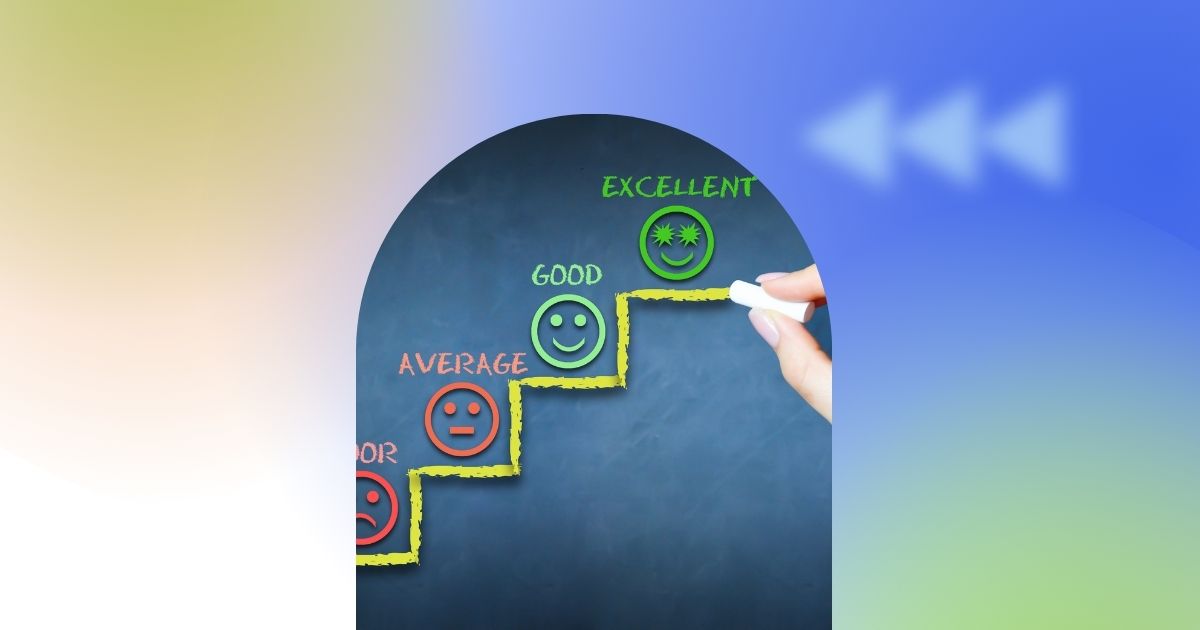Ever felt like support tickets keep piling up while customers quietly churn? Or that users love your product but can’t unlock its full value? That’s where a customer success engineer comes in. Combining technical skills with customer insight, a CSE helps users succeed with your product, driving faster onboarding, smoother issue resolution, and stronger retention. More than support, they’re strategic partners who help turn product usage into long-term growth.
In this blog, we’ll break down the role of a customer success engineer and why they’re crucial for SaaS companies and tech startups aiming to scale. You’ll discover how CSEs reduce churn, increase customer lifetime value, and bridge the gap between product and customer. We’ll also introduce Scale Support as your partner in finding and managing skilled CSEs who act as an extension of your team.
What is a Customer Success Engineer (CSE)?
A Customer Success Engineer (CSE) is a hybrid role that bridges the gap between technical support and proactive customer success. Unlike traditional support roles that focus on resolving tickets reactively, CSEs take a strategic, long-term approach to helping customers maximize a product’s value.
They serve as technically skilled advisors who understand both the product and the customer’s goals, guiding users through implementation, troubleshooting complex issues, and proactively identifying opportunities for growth or optimization.
CSEs blend deep product knowledge with strong communication and problem-solving skills. Their expertise spans API integrations, data configurations, software environments, and technical onboarding, while also maintaining the ability to explain complex concepts in a user-friendly way.
This balance makes them invaluable to SaaS platforms, cloud infrastructure providers, AI-driven tools, and other tech-driven businesses where success hinges on seamless implementation and sustained usage.
The importance of this role is only growing. The global customer success management market, valued at USD 1.8 billion in 2023, is projected to grow to over USD 13.2 billion by 2032, reflecting a CAGR of 24.73%.
As products become more sophisticated, customers expect faster, more personalized support, and customer support engineers are uniquely positioned to meet that need. For businesses, having a CSE on board isn’t just about retention; it’s about unlocking growth and building long-term customer relationships.
Why Customer Success Engineers Are Key to Retention
Here’s why CSEs are essential to retaining happy, engaged customers.
Customer Churn and the Limitations of Technical Support
Customer churn remains a major concern for SaaS companies, and relying solely on traditional technical support often falls short of preventing it. While technical support teams are essential in resolving issues, their focus is typically reactive, addressing problems as they arise rather than preventing them in the first place.
This can lead to dissatisfaction if customers face recurring issues or feel unsupported in their overall journey. In contrast, Customer Success Engineers (CSEs) offer a more proactive approach, helping to identify and solve problems before they escalate and ultimately fostering stronger, long-term customer relationships.
In fact, as the customer success management market grows rapidly, LinkedIn reported a 34% annual growth in the demand for customer success specialists in 2020. This trend reflects the growing recognition of the importance of CSEs and similar roles in improving retention. Their specialized skill set—blending technical expertise with customer engagement—is crucial in reducing churn and maximizing customer lifetime value.
CSEs’ Key Responsibilities
Customer Success Engineers have several key responsibilities that directly impact retention:
- Onboarding Customers Effectively: CSEs provide a tailored onboarding experience to ensure customers fully understand how to leverage the product, setting the stage for long-term success and satisfaction.
- Proactively Addressing Technical Roadblocks: CSEs identify potential issues before they affect customers, offering solutions to avoid downtime or frustrations that could lead to churn.
- Ensuring High Product Adoption Rates: By actively guiding customers through new features and ensuring they get the most value from the product, CSEs boost adoption and ensure customers remain engaged with the platform.
SaaS Case Study: Impact of CSEs on Retention
A SaaS company specializing in recruiting technology, it is a mid-stage startup helping recruiters connect with talent more effectively and personally. Through inbound marketing and high-quality, free content, it generates leads who request demos rather than offering self-service trials. Early in the customer journey, even before a prospect becomes a paying customer, the Customer Success team, which includes technical account managers, is introduced to ensure a smooth onboarding experience. Local customers receive in-person training, while remote clients get training via web meetings supported by remote customer success teams.
The SaaS company focuses heavily on customer retention, particularly in the first 90 days, believing that customers are most vulnerable to churn during this period. The team prioritizes a detailed onboarding plan, ensuring customers feel supported and set up for success. Follow-up meetings at 30 and 90 days address product feedback and assess usage, which improves retention.
Customer success managers (CSMs) also benefit from a performance-based compensation model that rewards customer retention and upselling. As a result, this strategy has led to record-high retention and upsell rates, proving the vital role of CSEs in fostering long-term customer loyalty.
The Role of Customer Success Engineers in Business Growth
CSEs are pivotal in driving business growth by reducing churn and increasing customer lifetime value (LTV). Their deep technical expertise, combined with a customer-centric approach, allows them to proactively address issues before they escalate. By ensuring customers are fully onboarded, CSEs help users understand and maximize the value of the product, increasing product adoption and reducing the likelihood of churn.
They monitor customer usage patterns, identify potential roadblocks, and work with customers to resolve technical issues quickly, ultimately enhancing the customer experience and fostering long-term relationships.
In addition to improving retention, CSEs play a crucial role in bridging the gap between customer feedback and product teams. They act as the voice of the customer, gathering insights about user needs, pain points, and feature requests.
These insights are then communicated directly to product teams, driving improvements that enhance the overall product offering. This feedback loop not only ensures the product evolves in line with customer demands but also demonstrates a company’s commitment to continuous improvement, which strengthens customer loyalty.
Moreover, CSEs are instrumental in identifying upsell and cross-sell opportunities. Through close customer relationships, they gain a deep understanding of customer needs, challenges, and goals.
By aligning these insights with the company’s product offerings, CSEs can recommend additional features or services that meet customer requirements, thus driving revenue growth. This strategic approach not only benefits the customer but also contributes to the overall business success.
By integrating technical expertise with customer success, CSEs, much like a customer support engineer or a technical account manager, reduce churn, enhance LTV, and contribute to the strategic growth of the business.
Essential Skills of a Customer Success Engineer
A CSE requires a unique combination of technical expertise, communication skills, and a customer-first mindset. To succeed in the role, they must excel in several key areas that bridge technical know-how with customer engagement. Below are the essential skills that define an effective CSE.

Technical Knowledge
CSEs must possess a deep understanding of the product’s technical architecture, including knowledge of APIs, integrations, and troubleshooting techniques. They are often tasked with solving complex technical issues and guiding customers through product implementation.
Whether integrating third-party applications or diagnosing system glitches, their technical expertise ensures customers achieve smooth product adoption and success. For SaaS customer success teams, this expertise is critical in maintaining high customer satisfaction and retention and ensuring seamless cloud-based customer support.
Customer Success Mindset
Beyond technical knowledge, CSEs need a customer-first approach. This includes exceptional communication skills, problem-solving abilities, and patience. CSEs must be able to clearly explain complex technical concepts in a way that is accessible to customers, addressing their concerns with empathy.
A strong customer success mindset helps build trust and fosters long-term relationships, driving customer satisfaction and retention. In the case of remote customer success teams, having strong communication and customer engagement skills is especially essential for maintaining a high level of service and satisfaction.
Data-Driven Approach
CSEs are also highly analytical, utilizing data to monitor customer health scores and assess product usage. By tracking key metrics, such as feature adoption rates and engagement levels, CSEs can identify early signs of potential issues or churn. This proactive, data-driven approach allows them to intervene before problems arise, ensuring customers stay on track and continue to see value in the product.
A data-driven approach is a cornerstone of successful SaaS customer success initiatives, as it allows teams to anticipate and address issues efficiently.
Collaboration
Finally, CSEs must work closely with cross-functional teams, including sales, support, and product. By collaborating with sales teams, they ensure smooth transitions from prospect to customer while also feeding insights back to the product team to inform future development. Close collaboration with support ensures issues are resolved quickly, while feedback loops with product teams help drive continual product improvements, benefiting both customers and the business.
For remote customer success teams, effective collaboration tools and communication practices are key to maintaining alignment and efficiency across all functions.
Together, these skills allow CSEs to be a vital force in customer retention and business growth.
The Challenges of Hiring Customer Success Engineers
Hiring a CSE presents a unique set of challenges for businesses, especially in fast-growing industries like SaaS customer success and cloud-based customer support. These challenges can significantly impact a company’s ability to scale its customer service teams effectively.
Balancing Technical Expertise and Communication Skills
CSEs must possess a unique blend of technical knowledge and interpersonal skills. They need to understand complex systems, APIs, and integrations, and communicate effectively with customers to resolve issues and guide them toward success. The challenge for many businesses is finding candidates who excel in both areas—an elusive combination that makes hiring a CSE more difficult.
High Costs and Lengthy Recruitment Processes
Hiring a skilled customer success engineer can be expensive. The need for specialized knowledge can quickly escalate salaries for CSEs, especially in high-demand sectors like SaaS customer success. Additionally, the recruitment process is often long and complex, involving multiple interview stages, technical assessments, and cultural fit evaluations. This can stretch the hiring timeline and increase costs, placing additional strain on business resources.
Limited Talent Pool and Market Competition
The demand for customer support engineers continues to rise as businesses increasingly recognize the value of proactive customer engagement. However, the supply of qualified CSEs is limited, which creates intense competition in the job market. Companies may find it difficult to attract top talent, particularly as larger, well-established organizations often offer more attractive compensation packages and benefits.
Cultural Fit and Onboarding Challenges
In addition to technical and communication skills, a CSE must fit well within your company’s culture. Cultural fit can impact collaboration, productivity, and customer satisfaction. However, identifying candidates who align with your organizational values while also meeting the technical requirements of the role can be a daunting task. Moreover, even after hiring, onboarding and training new CSEs to seamlessly integrate into your team requires additional time and resources.
How Scale Support Helps Businesses Hire Top Customer Success Engineers
Many businesses find it challenging to hire qualified, cost-effective CSEs. The process is time-consuming and costly, and requires finding professionals with technical expertise and strong communication skills.
Scale Support addresses this by offering pre-vetted, remote CSEs at a fraction of the cost of in-house hiring. Businesses gain access to a global network of experts skilled in technical troubleshooting and customer engagement, seamlessly integrating into existing teams.
Scale Support ensures quality through comprehensive training, ongoing supervision, and advanced tools while providing scalable solutions that adjust to business needs. Whether hiring one CSE or building a team, Scale Support offers flexible, managed support without long-term contracts.
Explore Scale Support’s solutions today and streamline your customer success efforts at a fraction of the cost.
Final Thought
Hiring a Customer Success Engineer (CSE) can significantly boost customer retention, growth, and satisfaction. Customer success engineers do not only resolve technical issues but also ensure customers get the most value from your product, fostering long-term relationships and driving business growth through proactive support and identifying new revenue opportunities.
As you consider adding customer success engineers to your team, evaluate your options carefully. Choosing a partner like ScaleSupport, which offers specialized and cost-effective solutions, is crucial for scaling your customer success efforts. ScaleSupport provides pre-vetted, remote customer success engineers who deliver high-quality service at a fraction of traditional hiring costs.
To explore ScaleSupport’s services, click here. For a personalized approach, schedule a free consultation today to discuss how we can help elevate your customer success strategy.

Dianne has extensive experience as a Content Writer, she creates engaging content that captivates readers and ranks well online. She stays on top of industry trends to keep her work fresh and impactful. She has a talent for turning complex ideas into relatable stories. When she’s not writing, you’ll probably find her with a crochet hook in hand or working on a fun craft project. She loves bringing creativity to life, whether it’s through words or handmade creations.






